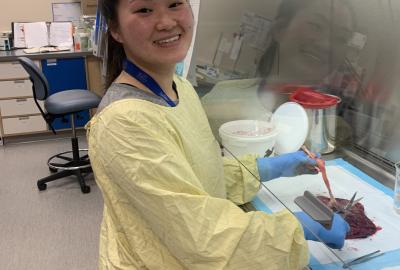
Feeling bummed because you don’t have a Co-op job yet? Nearing the end of the term and you’re still not getting interviews or have been rejected by them? Well don’t give up! You and several other Co-op students are sharing that hot seat together, and although you haven’t been placed yet, there is still a solution!
Ask your coordinators about self-directed Co-op. It’s a nifty opportunity where YOU search for employers and introduce our Co-op program to them. Doing so, you are creating your own work term but still meeting the requirements that make it an actual Co-op job. This is why you MUST consult your coordinator as they will be more than happy to give you information as you go out and search for potential employers. As a student, you might also receive internships and job opportunities offered within the campus or outside by your faculty members through email. You could apply to those jobs and use them to construct your own self-directed work term.
Recently, I’ve been bombarded with numerous jobs that I’ve applied for in hopes that I could use them for Co-op. I’ve even seen great internship opportunities that are very productive regardless of the pay, and I could use them to meet the total amount of work hour requirements. For me, experience is more important than a dollar amount because that’s the whole point of Co-op. In other words, try not to limit yourself as there are tons of “non Co-op” jobs that you can apply for, and construct them as your very own self-directed work term. But don’t forget to consult your Co-op coordinator first to discuss if the intern position meets the Co-op program’s requirements.
But wait, you could also travel and work for employers overseas by participating in the International Co-op program! SFU International will assist you in finding companies around the world and arrange a Co-op placement with them. For more information about self-directed work terms, visit the SFU Co-op website here for tips from your program.
As you can guess by now, there is a lot of research that has to be done to create your own Co-op work term. But always keep in mind that you’re not alone as your coordinators are there to help you every step of the way. So take advantage of their services and resources!















